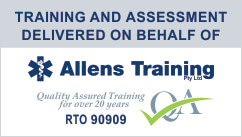Northern Beaches NOT trained in First Aid
FEWER than 5 per cent of Australians are qualified in first aid, sparking an urgent call from emergency services for people to update their skills and save a life.
Red Cross data released yesterday revealed Australia had one of the lowest rates of first-aid training in the world.
Parents were among those singled out as Red Cross trainer Janie McCullagh said first-aid skills could save the life of a loved one. “It can be the difference between life and death,” Ms McCullagh said.
“Our program is popular with pregnant ladies and their partners, they come along to learn what to do even before they have children. I think it would be appropriate for all adults to learn whether they are starting a family or not.”
First-aid training helped Seaforth mum Susie Campbell save two lives, including her young son Thomas when he was a baby.
The 43-year-old was taking then-nine-week-old Thomas, now seven, for a walk in a sling when she noticed he wasn’t breathing. She was able to resuscitate Thomas using cardiopulmonary resuscitation (CPR) skills she had learned just a week earlier.

Her first-aid training kicked in again just six months later when she heard her neighbour screaming frantically for help.
“I ran across and my neighbour’s son was turning blue, he had a lollipop stuck in his throat,” Mrs Campbell said.
“I knew I had to get it out because if it went down his throat any more he wouldn’t have been able to breathe.
“I flipped him upside down and all of a sudden it just shot out of his mouth.”
Mrs Campbell said knowing first aid was essential and every parent should make it their responsibility to learn.
“It gave me the confidence to deal with it then and there,” she said. “Without it, it may have been too late.”
Ms McCullagh said at the very minimum people learn CPR, which keeps oxygenated blood pumping through the body — ensuring it reaches the brain and vital organs.
If administered within the first minute after a person’s heart has stopped, their chance of surviving is 80 per cent. “People have to be ready to know what to do,” Ms McCullough said.
Knowing how to stop a critical bleed could also mean the difference between life and death, she said, adding that while first-aid won’t always result in the best outcome it can make a real difference.
“Once you have the knowledge it stays with you for life and gives you the confidence to react in the event of an accident,” she said.
Book in for a first aid or CPR training course with Simple Instruction at the Dee Why RSL, Northern Beaches, Sydney.
